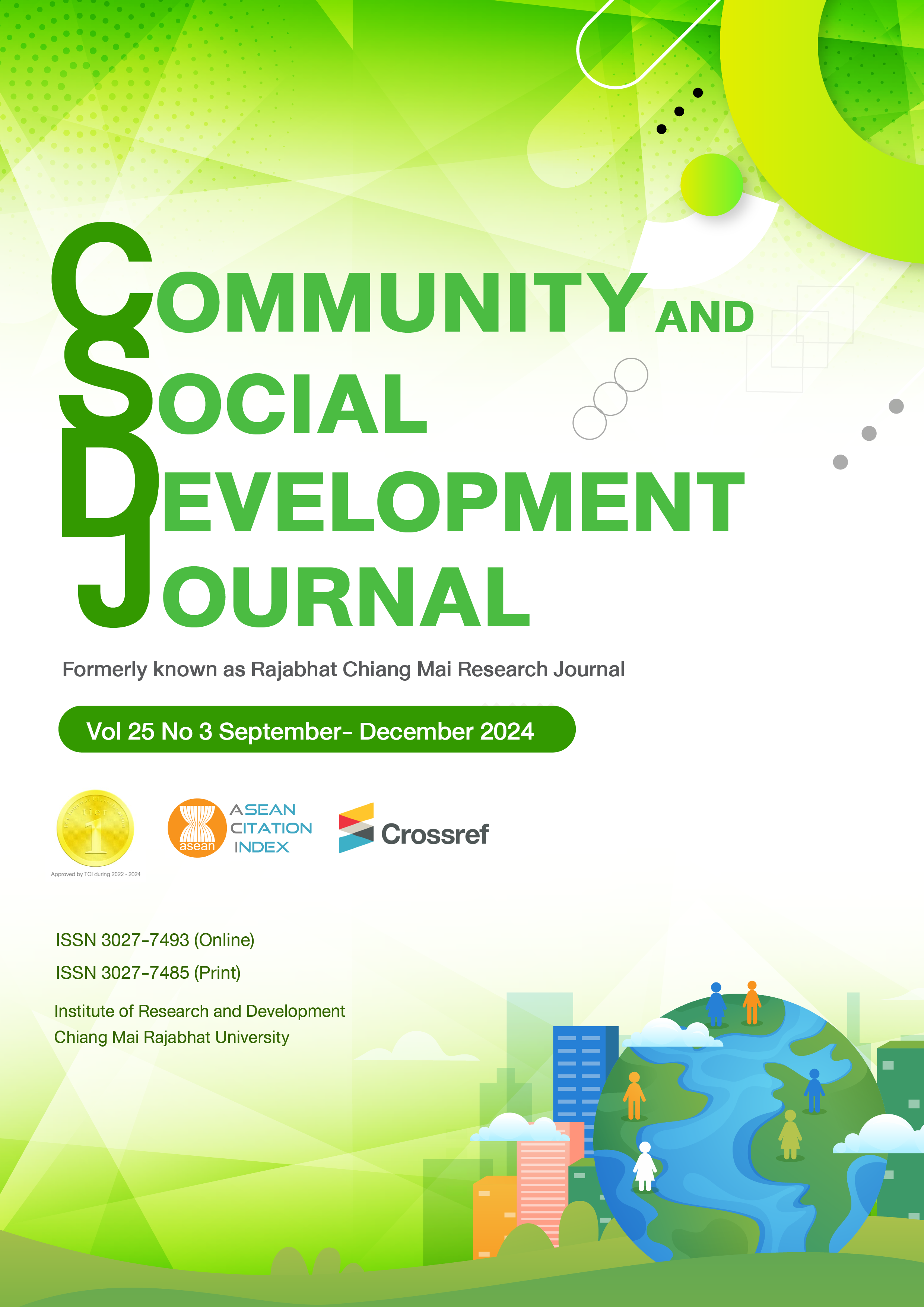Assessment of Online Teaching for Skill Based- Topics in Online Physical Education Classes
DOI:
https://doi.org/10.57260/csdj.2024.268440คำสำคัญ:
Digital teaching aids, Instructional materials, Skill-Based topics, Teaching strategiesบทคัดย่อ
Technology is indeed helpful especially when teaching the students. The online class is just one way people teach and learn. In today's situation, technological advancements in Physical Education (PE) are highly utilized in teaching skill-based topics. This study aimed to assess the use of various digital teaching aids for skill-based topics to improve teaching and learning in online physical education. Furthermore, this study aimed to achieve the following objectives: determine the instructional materials utilized in teaching the skill-based topics; assess the extent of utilization of online teaching strategies of Physical Education teachers for dominantly skill-based topics; determine the challenges encountered by teachers in conducting online Physical Education; compare the assessments between the two groups of respondents; and lastly, propose digital teaching aids for skill-based topics in Physical Education courses. This study used a descriptive method with a researcher-made questionnaire via Google Form as the data-gathering instrument. Statistical tools used were weighted mean, composite mean, and T-test. The respondents of the study were 52 BPEd students and 29 Physical Education instructors from the Batangas State University Main 1. Findings reveal that both teachers and students effectively learn and teach physical education through the use of videos, presentations, and online platforms. The study also shows that the major problem encountered in online learning is the capability to use gadgets. As part of the recommendation, the researchers created digital teaching aids using films, presentations, and modules to improve the learning of skill-based topics for online physical education.
Downloads
เอกสารอ้างอิง
Ahmed, M. A. A. (2017). A Review on the Properties and Uses of Ferrite Magnet. (PhD., Dissertation, Sudan University of Science and Technology, Khartoum).
Burne, G., Ovans, A., & Philpot, R. (2018). Teaching Physical Education with Digital Technologies: A Self-Study of Practice. Rebescolar, 4(2), 93-108. Retrieved from http://hdl.handle.net/2292/45807
Dyrud, M. A. (2000). The third wave: a position paper. Business Communication Quarterly, 63(3), 81-93. DOI:10.1177/108056990006300310
Fuegen, S. (2012). The impact of mobile technologies on distance education. TechTrends, 56, 49-53. DOI:10.1007/s11528-012-0614-0
Gillett-Swan, J. (2017). The Challenges of Online Learning: Supporting and Engaging the Isolated Learner. Journal of Learning Design, 10(1), 20-30.
DOI:10.5204/jld.v9i3.293
Goad & Jones, (2017). Training Online Physical Educators: A Phenomenological Case Study. Education Research International, 1(1), 1-12. Retrieved from https://onlinelibrary.wiley.com/doi/10.1155/2017/3757489
Keengwe, J., & Kidd, T. T. (2010). Towards Best Practices in Online Learning and Teaching in Higher Education. MERLOT Journal of Online Learning and Training, 6(2), 533-541. Retrieved from https://jolt.merlot.org/vol6no2/keengwe_0610.pdf
Hyun, C. J., & Wi-Young, S. (2020). Difficulties of Online Physical Education Classes in Middle and High School and an Efficient Operation Plan to Address Them. International Journal of Environmental Research and Public Health, 17(19), 7279. Retrieved from https://doi.org/10.3390/ijerph17197279
Lamb, L. L., & Annetta, L (2013), The Use of Online Modules and the Effect on Student Outcomes in a High School Chemistry Class. Journal of Science Education and Technology, 22, 603-613. Retrieved from https://link.springer.com/article/10.1007/s10956-012-9417-5
Mc Combes, S. (2019). Descriptive Research | Definition, Types, Methods & Example Retrieved from https://www.scribbr.com/methodology/descriptive-research/
McVicker, D. (2018). How Technology Changes Physical Education Classes. Retrieved from https://learn.g2.com/technology-in-physical-education
ดาวน์โหลด
เผยแพร่แล้ว
รูปแบบการอ้างอิง
ฉบับ
ประเภทบทความ
สัญญาอนุญาต
ลิขสิทธิ์ (c) 2024 Community and Social Development Journal

อนุญาตภายใต้เงื่อนไข Creative Commons Attribution-NonCommercial-NoDerivatives 4.0 International License.
1. บทความ ข้อมูล เนื้อหา รูปภาพ ฯลฯ ที่ได้รับการตีพิมพ์ใน “Community and Social Development Journal” ถือเป็นลิขสิทธิ์ของ Community and Social Development Journal มหาวิทยาลัยราชภัฏเชียงใหม่ และเพื่อให้เผยแพร่บทความได้อย่างเหมาะสมผ่านสื่อสิ่งพิมพ์และอิเล็กทรอนิกส์ ผู้เขียนยังคงถือครองลิขสิทธิ์บทความที่ตีพิมพ์ภายใต้ใบอนุญาต Creative Commons Attribution (CC BY) ซึ่งอนุญาตให้เผยแพร่บทความซ้ำในแหล่งอื่นได้ โดยอ้างอิงต้องอ้งอิงบทความในวารสาร ผู้เขียนต้องรับผิดชอบในการขออนุญาตผลิตซ้ำเนื้อหาที่มีลิขสิทธิ์จากแหล่งอื่น
2. เนื้อหาบทความที่ปรากฏในวารสารเป็นความรับผิดชอบของผู้เขียนบทความโดยตรง ซึ่งกองบรรณาธิการวารสารไม่จำเป็นต้องเห็นด้วยหรือร่วมรับผิดชอบใดๆ














